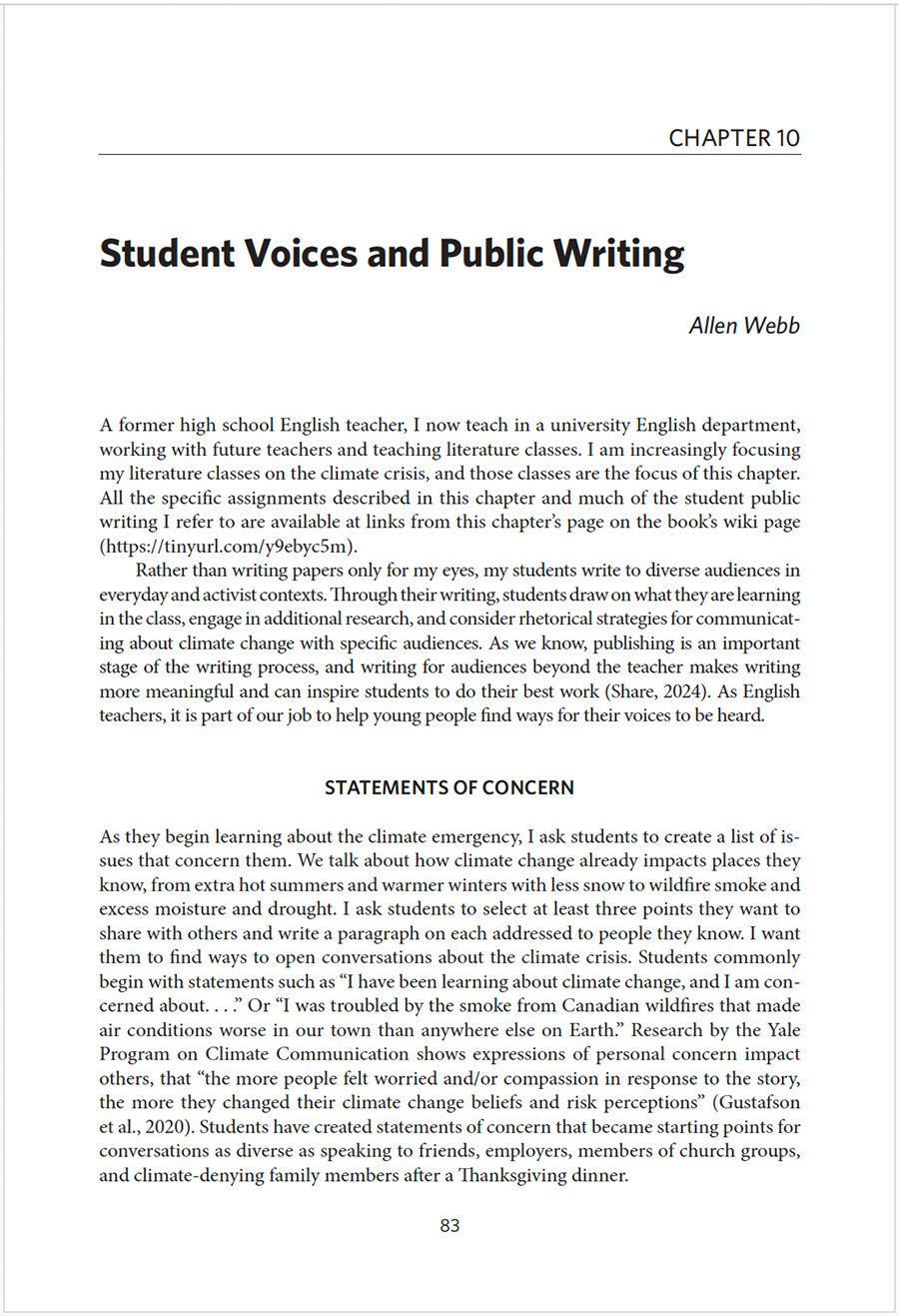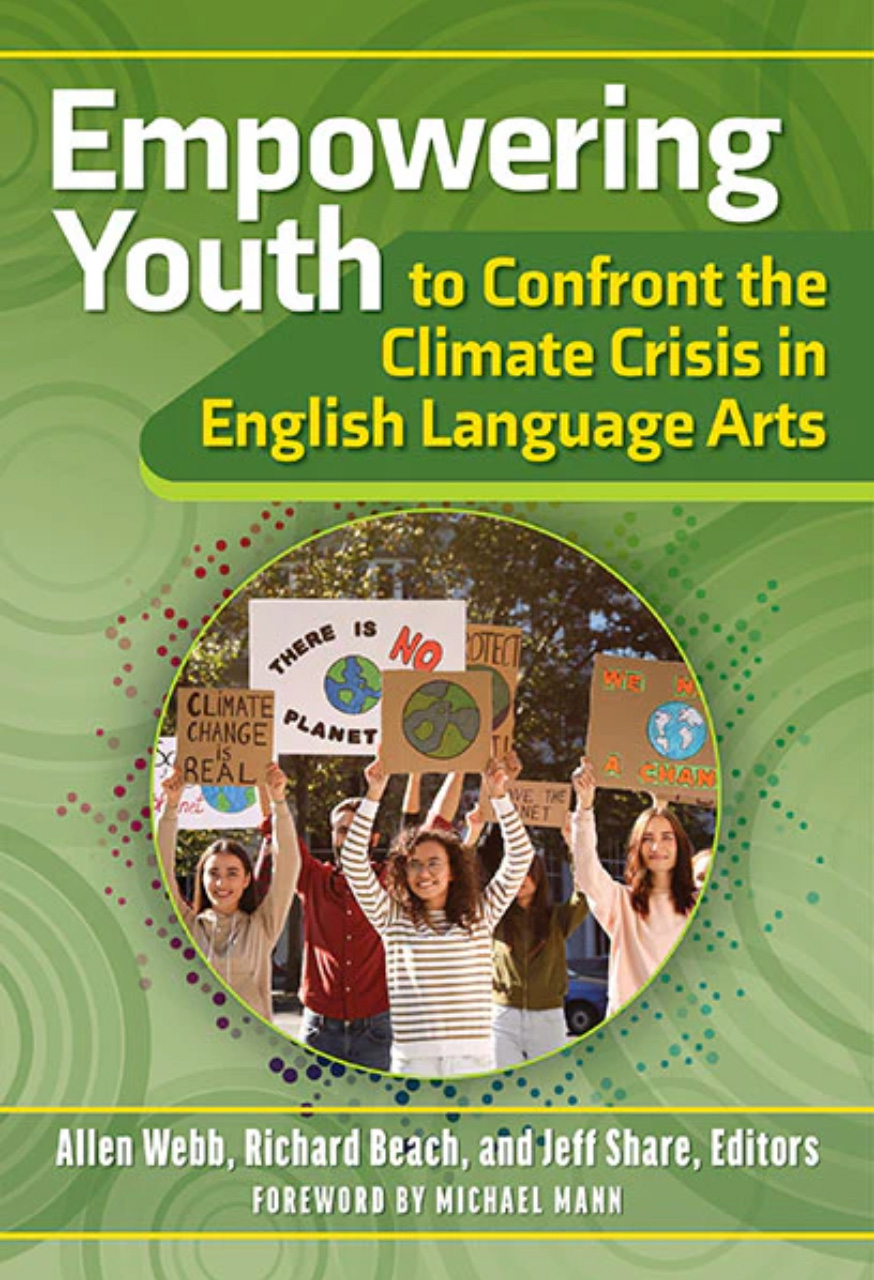Content-Area Literacy
Student Voices and Public Writing
A Chapter from Empowering Youth to Confront the Climate Crisis in English Language Arts
Summary:
Publishing is an important stage of the writing process, and writing for audiences beyond the teacher makes writing more meaningful and can inspire students to do their best work. This chapter supports English teachers to help young people find ways for their voices to be heard, with a focus on student writing about the climate crisis.“Public writing not only helps students better understand, connect, and clarify the issues, but it also establishes their stance, empowers them to speak out, prepares them for activist leadership, and gives them hope for the future.”
Also Recommended
See allBadges and Badging in the Classroom
Sites that are awarding or exploring badges may want to point colleagues to these selections that illustrate how teacher-leaders have used badges in their classroom teaching or writing programs.
Read more
Everyday Advocacy Playbook
Teachers often feel their expertise is ignored in discussions about education policy and curriculum. Everyday Advocacy is an approach that empowers teachers to take small, day-to-day actions to influence the public narrative around schools and teaching. This Playbook provides guidance and examples to help teachers get started with this type of advocacy as part of their regular teaching work.
Read more



